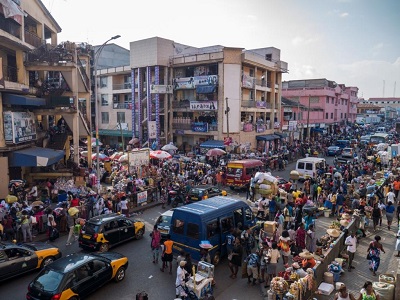Ghana’s Interest Payment Burden Reduced by GHS 7.9 Billion to GHS 48 Billon in 2024 Following Debt Restructuring
Ghana’s external debt restructuring together with the IMF program has effectively reduced the country’s interest payment burden from GHS 55.9 billion (largest expenditure item) to GHS 48.0 billion (second largest expenditure item) for 2024.
According to Deloitte in its 2024 Mid-Year Budget Review report, the reduction in interest payment burden will create the needed fiscal space to implement key Government programs to revitalize and transform the economy.
Ghana’s external debt restructuring of a combined $18.1bn owed official creditors and Eurobond holders has resulted in debt relief of $4.4 billion and debt cancellation of $4.7 billion over the course of the country’s 3-year IMF Programme.
On the domestic front, the Government in view of its heavy dependence on the domestic market due to its inability to access the international capital market, has borrowed over GHS 155bn in treasury bills for the first half of 2024.
The Government plans to further borrow some GHS 78bn in the third quarter of the year.
Total Government expenditure for 2024 has been revised downward to GHS 219.7 billion compared to the 2024 budget of GHS 226.7 billion representing a 3.2% decrease.
Government in the first half of 2024 recorded a budget deficit (cash basis) of GHS36.1 billion (3.4% of GDP) against a target of GHS35.1 billion (3.3% of GDP).
The budget deficit (cash basis) is however, projected to improve (to 5.3% of GDP) by the end of 2024, compared with an initial budget of 5.9% of GDP.
Total Revenue & Grants for 2024 have been revised upward to GHS177.2 billion compared to the 2024 budget of GHS176.4 billion representing a 0.5% increase.
Non-tax Revenue for 2024 is projected to increase to GHS15.6 billion compared to the 2024 budget of GHS14.8 billion representing a 5% increase.
Meanwhile, the Government is projecting an increase in capital expenditure investments from 2.5% of GDP in 2023 to 2.8% of GDP in 2024.
The increase in capital expenditure, Deloitte notes in its report, signals a strong focus to improve social infrastructure and other key amenities amidst the fiscal consolidation programme.
Adding that, the allocation of such spending to priority sectors can spur strong economic performance in the medium to long term.








